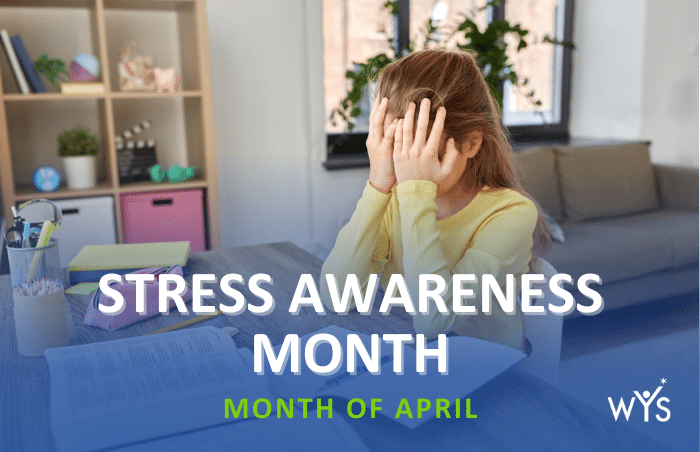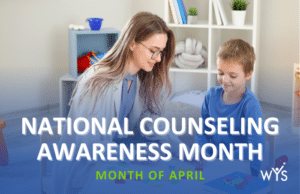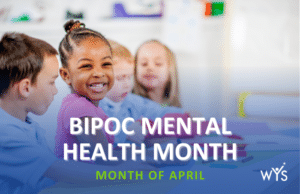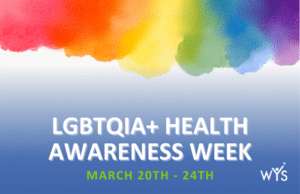
April is here which means it’s Stress Awareness Month. This is a great opportunity to acknowledge stress and its impact on mental health. While stress is a normal part of life, prolonged or even overwhelming stress can truly take its toll, especially on younger individuals. With academic pressures, social expectations, and life transitions, many youth experience stress that affects their overall well-being. Fortunately, understanding stress and learning ways in which it can be reduced helps young people navigate challenges with resilience.
The Impact of Stress on Youth
Stress can affect youth in many different ways, from emotional distress to physical symptoms. Studies have shown that 81% of teens ages 13-17 have reported experiencing stress about school (APA, 2023). Other common stressors for youth include:
- Academic performance and testing
- Social relationships and peer pressure
- Family expectations and responsibilities
- Financial concerns within the household
- Social media and digital presence
Chronic stress can morph into difficulties in concentration, sleep issues, increased irritability, and even physical health concerns like headaches or digestive issues. If stress is left unaddressed, it may contribute to larger issues like anxiety or depression. This is why mental health awareness and proactive stress management are essential.
How to Reduce Stress in Youth
Learning stress management tips can help young people handle challenges in a healthier way. Here are some strategies that youth can utilize:
1. Identify Stress Triggers
Recognizing what causes stress is the first step toward managing it. Whether it’s schoolwork, social situations, or other pressures, identifying stressors helps youth develop coping strategies.
2. Practice Mindfulness & Relaxation Techniques
Mindfulness, deep breathing, and guided meditation can help reduce stress. Studies show that mindfulness-based stress reduction (MBSR) techniques can improve emotional regulation and decrease anxiety in youth. A great example of a MBSR technique is box breathing, which involves inhaling, holding, exhaling, and pausing for equal counts to promote relaxation and focus.
3. Stay Active
Physical activity is a natural stress reliever. Exercise releases endorphins that improve mood and reduce stress. Try out new things like a sport, yoga, or simply taking a walk.
4. Prioritize Sleep
According to the CDC, adolescents need 8–10 hours of sleep per night, but many fall short due to stress and increased screen time (CDC, 2023). Keeping bedtime consistent and reducing screens before bed can support better sleep outcomes.
5. Connect with Supportive People
Talking to a trusted friend, family member, or mentor can provide both relief and perspective. Supportive relationships help youth feel less alone in their struggles.
6. Set Realistic Goals & Break Tasks Down
Breaking large tasks into smaller, manageable steps reduces feelings of being completely overwhelmed. Encouraging youth to set realistic goals can promote a sense of accomplishment and control.
How Western Youth Services Can Help
At Western Youth Services (WYS), we understand that stress is a significant challenge for young people. Our ACEs Expertise program focuses on addressing Adverse Childhood Experiences (ACEs), which can contribute to chronic stress and long-term health outcomes. By providing trauma-informed care, we help youth build resilience, develop coping skills, and access professional support.
Through school-based programs, family counseling, and workshops, WYS offers resources best fit for youth and families. Our goal is to empower young people to manage stress in healthy ways and support their journey with mental health.
Additional Resources for Stress Awareness Month
If you or someone you know is experiencing stress, consider these resources:
- National Alliance on Mental Illness (NAMI) – www.nami.org
- American Psychological Association (APA) Stress Management Resources – www.apa.org
- Mindfulness for Teens – www.mindfulnessforteens.com
- Mindfulness Apps: Apps like Headspace and Calm offer guided meditation and breathing exercises.
- Mental Health Hotlines: The Crisis Text Line (Text HOME to 741741) provides 24/7 support for those in distress.
- WYS Support Services: Visit our website to learn more about our youth mental health programs and counseling services.
Stress is a normal part of life, but it doesn’t need to be fully encompassing. Youth can navigate challenges and build resilience when they’re given the right tools, support, and strategies. At WYS, we’re committed to creating a supportive community where every individual feels heard, valued, and empowered. If you or someone you know needs support, reach out to WYS to learn more about our programs and services.
If your child or a young loved one is struggling with a mental health concern, we encourage you to reach out to a mental health professional or to contact an Access Coordinator at Western Youth Services by sending an email to gethelp@westernyouthservices.org or by calling us toll-free at 888-312-0406.
You can find Orange County, state, and national resources on our site here: https://www.westernyouthservices.org/resources/.
Sources:
- https://www.westernyouthservices.org/
- https://www.crisistextline.org/
- https://www.calm.com/
- https://www.headspace.com/
- https://www.mindfulnessforteens.com/
- https://www.apa.org/
- https://www.nami.org/
- https://www.westernyouthservices.org/aces-expertise/
- https://archive.cdc.gov/www_cdc_gov/healthyschools/features/students-sleep.htm
- https://pmc.ncbi.nlm.nih.gov/articles/PMC5679245/#:~:text=More%20specifically%2C%20individuals%20in%20the%20MBSR%20group,to%20a%20laboratory%20social%20stress%20challenge%20task.&text=MBIs%20have%20demonstrated%20efficacy%20in%20reducing%20anxiety,in%20a%20broad%20range%20of%20treatment%2Dseeking%20individuals.
- https://www.apa.org/news/press/releases/stress






